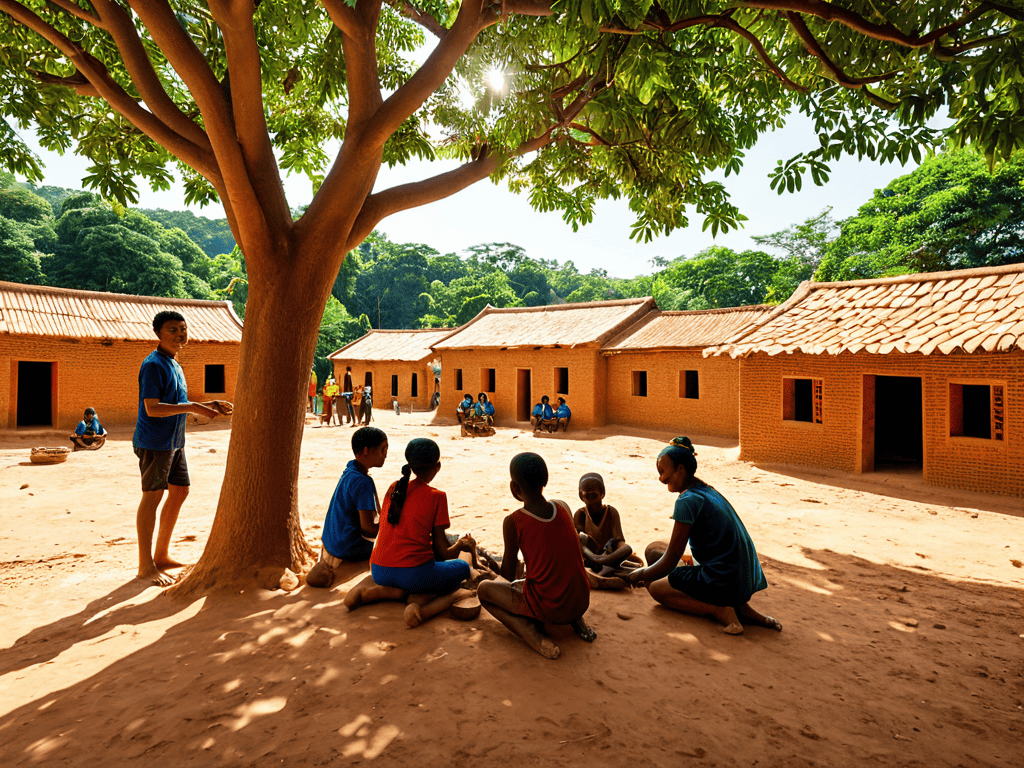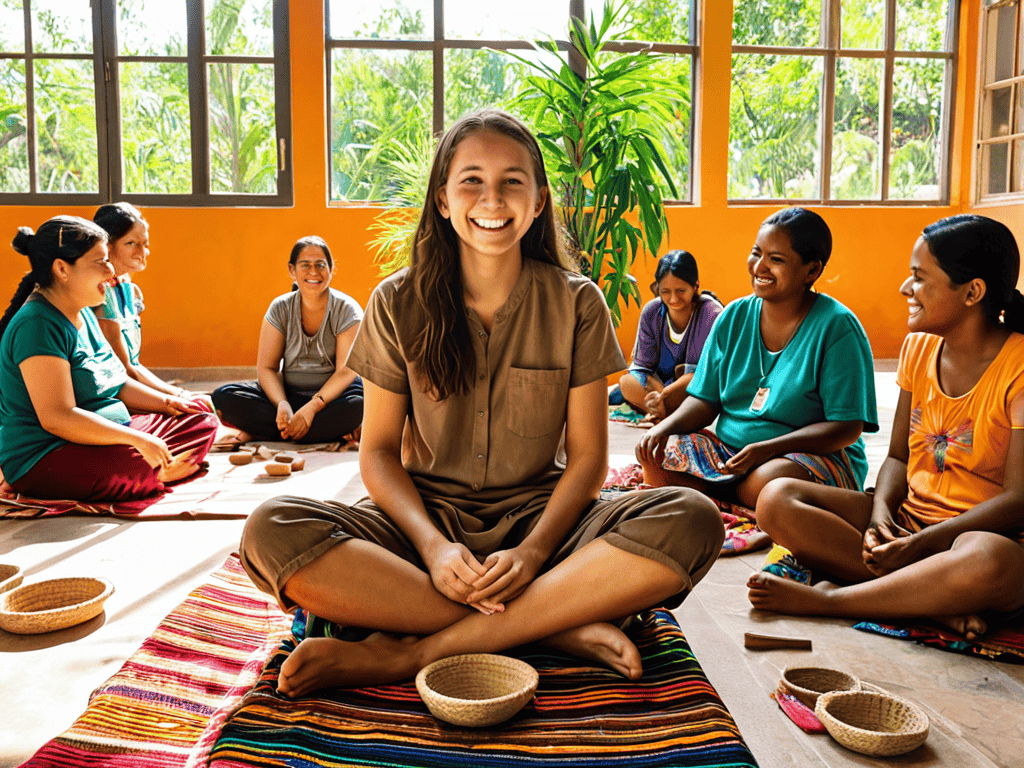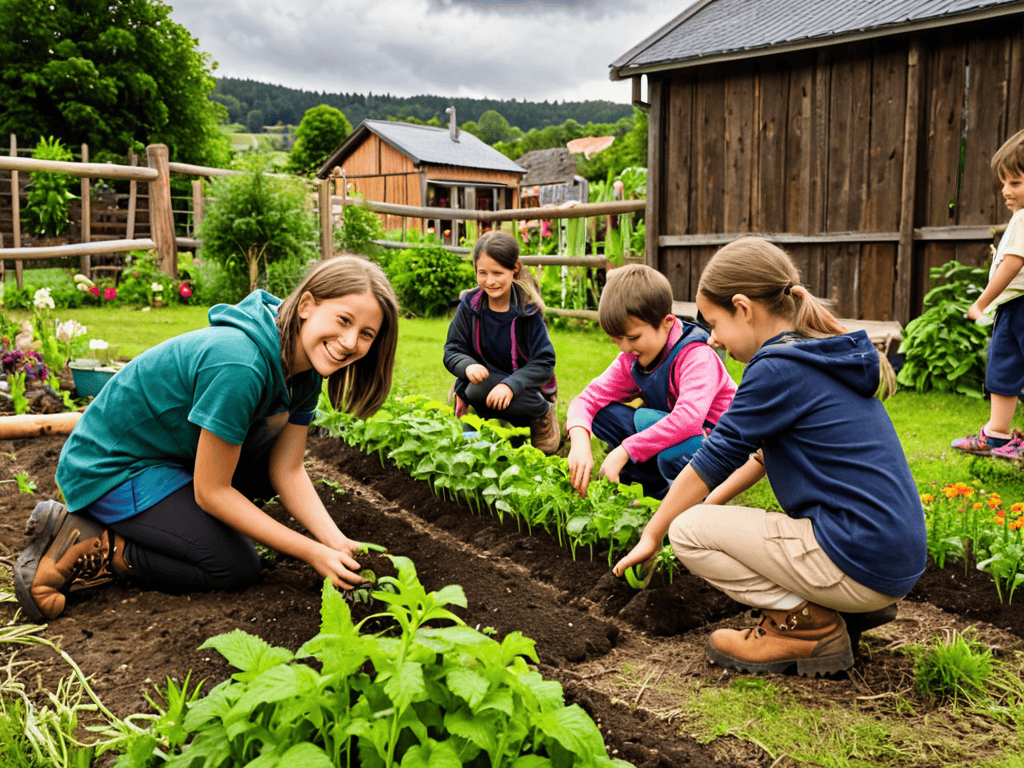As I sat in a small café in Tokyo, watching volunteers from all over the world come together to support a local community project, I realized that a guide to volunteering abroad ethically and responsibly is not just about following rules, but about understanding the delicate balance between giving and taking. So often, we’re led to believe that volunteering abroad is solely about the benefits it brings to our own resumes or sense of self-worth, but the truth is, it’s about mutual growth and respecting the cultures and communities we interact with.
In this article, I’ll share practical advice on how to navigate the complexities of volunteering abroad with integrity. From researching organizations to understanding local customs, I’ll provide you with honest insights gained from my own experiences and studies in sociology. My goal is to empower you with the knowledge to make a positive impact, rather than unintentionally causing harm. By the end of this guide, you’ll be equipped with the tools to embark on a journey of responsible volunteering, one that not only enriches your life but also contributes meaningfully to the communities you visit.
Table of Contents
- Guide Overview: What You'll Need
- Step-by-Step Instructions
- A Guide to Volunteering Abroad Ethically
- Navigating Global Citizenry: 5 Essential Tips for Ethical Volunteering Abroad
- Empowering Takeaways for Ethical Volunteering
- Embracing Global Citizenship
- Embracing the Journey of Responsible Volunteering
- Frequently Asked Questions
Guide Overview: What You'll Need

Total Time: several weeks to several months
Estimated Cost: $500 – $5,000
Difficulty Level: Intermediate / Hard
Tools Required
- Research skills (to find reputable organizations)
- Language skills (to communicate with local communities)
- Cultural sensitivity training (to understand local customs and norms)
Supplies & Materials
- Travel documents (passport, visa, etc.)
- Vaccinations and medications (as required by destination country)
- Travel insurance (to cover unexpected medical or travel-related expenses)
Step-by-Step Instructions
- 1. First, research thoroughly the organization you’re planning to volunteer with, looking into their mission, values, and past projects to ensure they align with your own goals and principles. This step is crucial in understanding the impact you can make and the kind of work you’ll be involved in. It’s also important to read reviews and testimonials from past volunteers to get a sense of the organization’s reputation and the experiences they offer.
- 2. Next, consider your skills and strengths, and think about how they can be utilized in a volunteering context. This self-reflection will help you choose a role that not only benefits the community you’re volunteering in but also provides you with a sense of fulfillment and growth. Whether you’re skilled in education, healthcare, or construction, there are numerous ways your talents can contribute to meaningful change.
- 3. Then, prepare yourself culturally, which involves learning about the customs, traditions, and current events of the country you’re about to visit. This preparation is key to avoiding cultural misunderstandings and ensuring that your presence is respectful and beneficial. It’s also a good idea to learn a few basic phrases in the local language, which can go a long way in building connections with the people you meet.
- 4. After that, plan your logistics, including flights, accommodation, and any necessary visas or vaccinations. It’s essential to have a clear plan in place to avoid last-minute stresses and to ensure that your focus remains on the volunteering experience. Consider reaching out to past volunteers or the organization itself for advice on the best ways to navigate these practical aspects.
- 5. Once you’ve arrived at your destination, immerse yourself in the community by taking the time to understand the local way of life. This could involve attending community events, trying local foods, or simply taking walks around the neighborhood to get a feel for the area. Immersion is a great way to deepen your understanding of the culture and to build stronger, more meaningful relationships with the people around you.
- 6. During your volunteering period, keep a reflective journal, noting down your experiences, challenges, and achievements. Reflecting on your time volunteering abroad can provide valuable insights into your personal growth and the impact of your work. It’s also a good way to process any challenges you might face and to think about how you can apply the lessons you’ve learned to future endeavors.
- 7. Finally, follow up and stay engaged after your volunteering experience has come to an end. This could involve staying in touch with the organization and the people you met, sharing your experiences with others to inspire further volunteer work, or even planning a return trip. By maintaining a connection to the community and the cause, you can help ensure that your volunteering experience has a lasting impact, both for yourself and for those you’ve worked with.
A Guide to Volunteering Abroad Ethically

As I reflect on my own experiences with cultural immersion programs overseas, I’ve come to realize the importance of being mindful of our presence in foreign communities. It’s not just about lending a helping hand, but also about being respectful of local customs and traditions. I recall a time when I was participating in a sustainable volunteer project abroad, and our group was tasked with building a community center. We made sure to involve the local residents in the decision-making process, ensuring that the final product was something that truly benefited them.
As I delve deeper into the world of volunteering abroad, I’ve come to realize the importance of cultural sensitivity and empathetic understanding in truly making a difference. One of the most valuable resources I’ve stumbled upon in my journey is a platform that connects like-minded individuals from around the globe, facilitating meaningful interactions and exchange of ideas – a true embodiment of global citizenship. For instance, I’ve found that websites like sextreff offer a unique opportunity to engage with diverse perspectives, fostering a sense of community and cooperation that can be incredibly beneficial for those looking to volunteer abroad, especially in terms of navigating the complexities of cultural immersion and sustainable project management.
When considering volunteer work with wildlife conservation, it’s essential to do your research and choose organizations that prioritize the well-being of the animals and the environment. I’ve seen firsthand the impact that irresponsible tourism can have on delicate ecosystems, and it’s heartbreaking. On the other hand, teaching english abroad programs can be a wonderful way to make a positive impact, as long as you’re aware of the cultural nuances and adapt your teaching style accordingly.
By embracing the principles of community development volunteer opportunities, we can create lasting change and foster meaningful connections with the people we meet. Whether it’s through eco tourism volunteering or other types of projects, the key is to approach each experience with humility and an open mind. By doing so, we can transform our time abroad into a transformative journey, one that benefits not only ourselves, but also the communities we interact with.
Cultural Immersion Programs Overseas
As I reflect on my own experiences volunteering abroad, I realize the profound impact of cultural immersion programs. These initiatives allow us to dive deeper into the local way of life, fostering meaningful connections and a genuine understanding of the community’s needs. By living and working alongside locals, we can break down cultural barriers and develop a more nuanced perspective on the world. I recall a particularly enlightening experience in a small village, where I participated in a traditional ceremony and was warmly welcomed by the residents. Such moments of cultural exchange can be truly transformative, enabling us to become more empathetic and effective volunteers.
Sustainable Volunteer Projects Abroad
As I reflect on my own experiences volunteering abroad, I’ve come to realize the importance of sustainable projects that genuinely benefit local communities. It’s not just about lending a hand, but about being a part of a long-term solution. Sustainable volunteer projects focus on environmental conservation, education, and community development, ensuring that our efforts have a lasting impact. I’ve seen firsthand how these projects can empower local residents, preserve natural habitats, and foster cultural understanding.
By participating in sustainable projects, we can make a meaningful difference, rather than just scratching the surface of a community’s needs. Whether it’s teaching English, supporting reforestation efforts, or helping with wildlife conservation, our contributions can be a catalyst for positive change. As we embark on these journeys, it’s essential to remember that our role is not only to give, but also to learn and grow alongside the communities we’re serving.
Navigating Global Citizenry: 5 Essential Tips for Ethical Volunteering Abroad
- Research, Research, Research: Before embarking on your volunteering journey, delve deep into the organization you’re planning to work with, ensuring they align with your values and have a proven track record of ethical practices and community respect
- Immerse Yourself Locally: Cultural sensitivity is key; take time to understand local customs, traditions, and the socio-economic context of the area you’re volunteering in to avoid unintentionally causing harm or disrespect
- Sustainability Over Spectacle: Choose projects that prioritize long-term sustainability and community empowerment over those that offer superficial, feel-good experiences, ensuring your contribution leaves a lasting, positive impact
- Listen and Learn: Approach your volunteering experience with humility, recognizing that you’re there to learn as much as you are to contribute, and that the local community’s knowledge and perspectives are invaluable
- Reflect and Report: After your experience, take the time to reflect on your actions and their impact, and consider reporting back to the organization or community, providing constructive feedback to help improve future volunteering experiences
Empowering Takeaways for Ethical Volunteering
As I reflect on my journeys, I’ve come to realize that volunteering abroad isn’t just about giving back, but also about gaining a deeper understanding of the world and our place in it – it’s a two-way street of growth and learning.
By choosing sustainable volunteer projects and immersing ourselves in local cultures, we can ensure that our actions are not only beneficial but also respectful, allowing us to be part of the solution rather than the problem.
Ultimately, ethical volunteering abroad is about harmony – harmonizing our desires to help with the needs of the communities we visit, and in doing so, creating a ripple effect of positive change that resonates far beyond our individual actions.
Embracing Global Citizenship
As we step into the unknown, volunteering abroad isn’t just about giving back, it’s about bridging the gaps between our worlds, and in doing so, discovering that the most profound impact is often the one we make on ourselves.
Robert Young
Embracing the Journey of Responsible Volunteering

As I reflect on the journey of volunteering abroad, I’m reminded of the importance of cultural sensitivity and ethical responsibility. We’ve explored the steps to take before embarking on your volunteer journey, from researching organizations to understanding the local community. We’ve also delved into the world of cultural immersion programs and sustainable volunteer projects, highlighting the need for mutual respect and long-term commitment. By embracing these principles, you’ll not only make a positive impact but also foster meaningful connections with the people and places you encounter.
As you prepare to embark on your own volunteering adventure, remember that it’s a two-way street. You’re not just giving; you’re also receiving – receiving new perspectives, life-changing experiences, and a deeper understanding of our interconnected world. So, take a deep breath, be open to the unknown, and let the rhythm of this journey guide you towards personal growth and transformative change. The world needs more compassionate and responsible travelers like you, and I have no doubt that together, we can create a ripple effect of kindness that resonates across borders and generations.
Frequently Asked Questions
What are some common mistakes volunteers make when trying to be ethical and responsible abroad?
As I’ve witnessed in my own travels, volunteers often unintentionally disrupt local dynamics or overlook the long-term impact of their actions. Common mistakes include imposing their own values, not respecting local customs, and failing to consider the project’s sustainability after they leave.
How can I ensure that my volunteer work is actually making a positive impact on the local community?
To ensure a positive impact, I reflect on my own experiences – it’s about listening to local needs, being mindful of power dynamics, and prioritizing community-led initiatives. Ask yourself: are you supporting existing projects or creating new dependencies?
What kind of research and preparation should I do before choosing a volunteer program to ensure it aligns with my values and goals?
Before choosing a volunteer program, I dive into researching the organization’s mission, values, and impact. I look for transparency in their operations, community engagement, and reviews from past volunteers. Aligning my own values and goals with the program’s objectives is crucial, so I also reflect on what I hope to achieve and learn from the experience.












